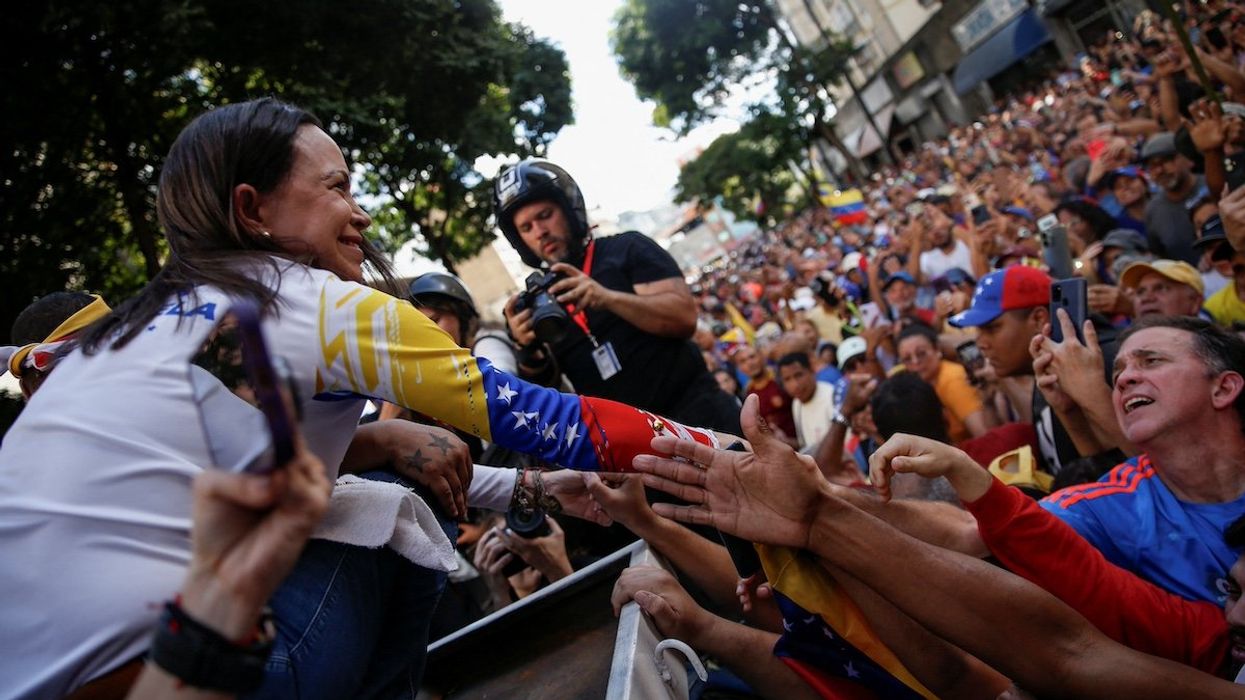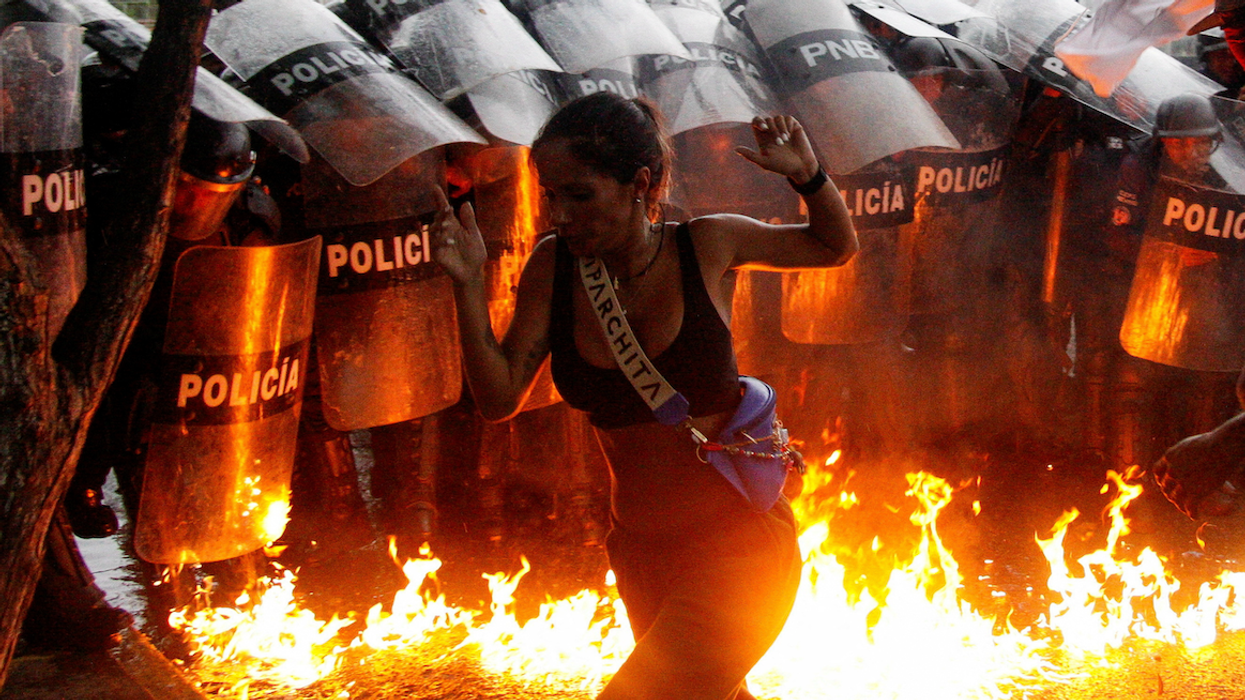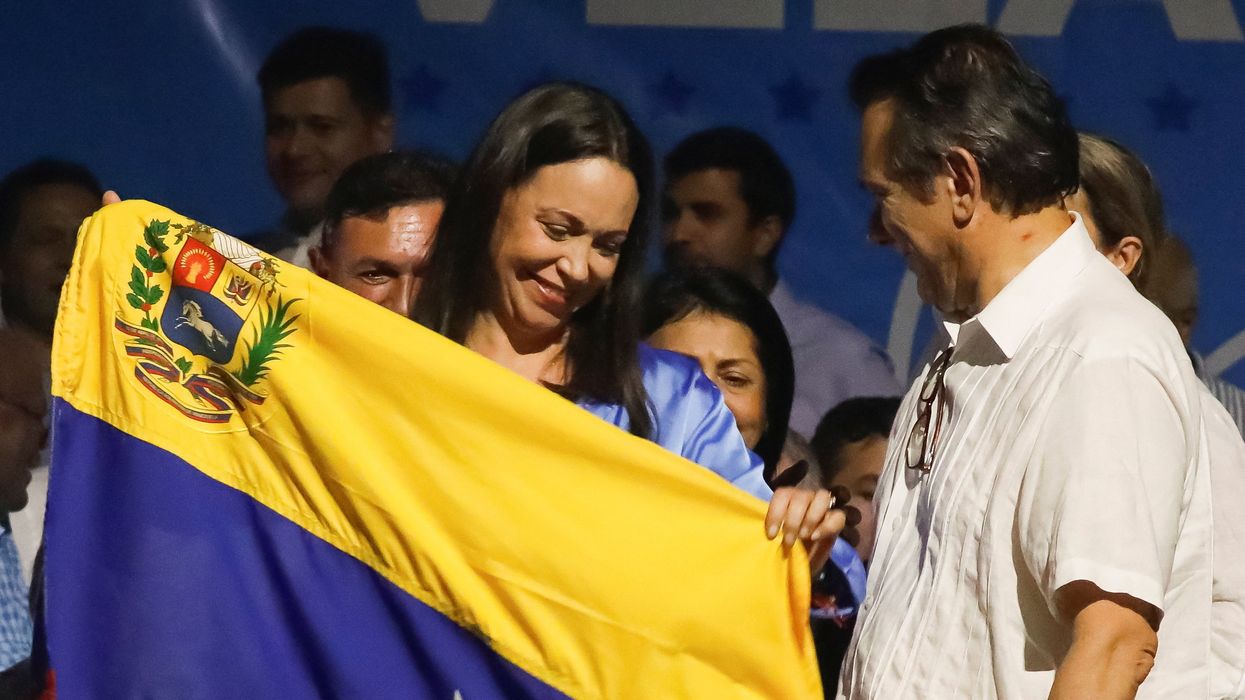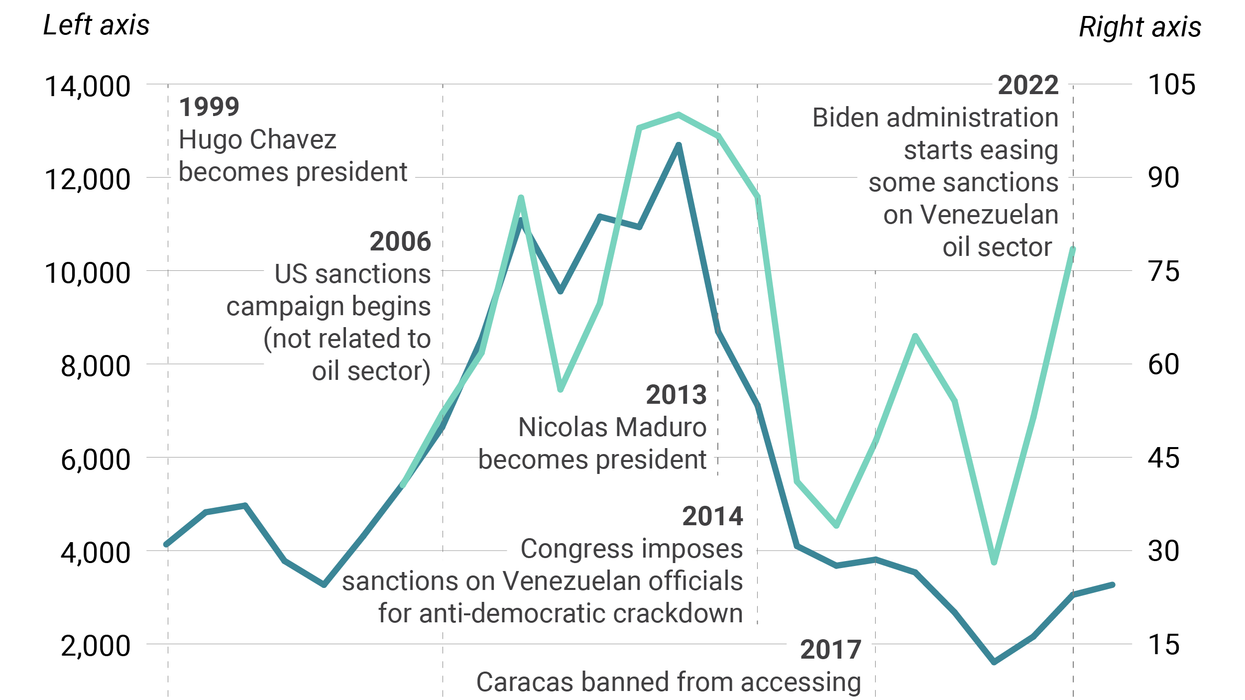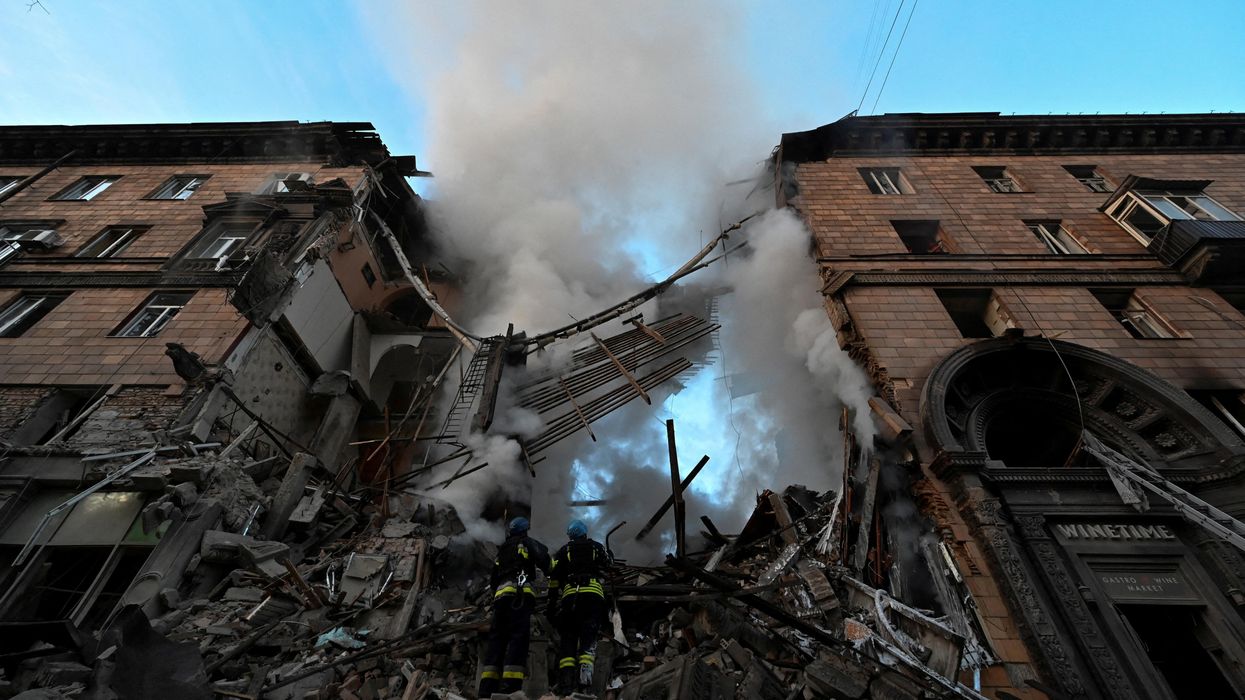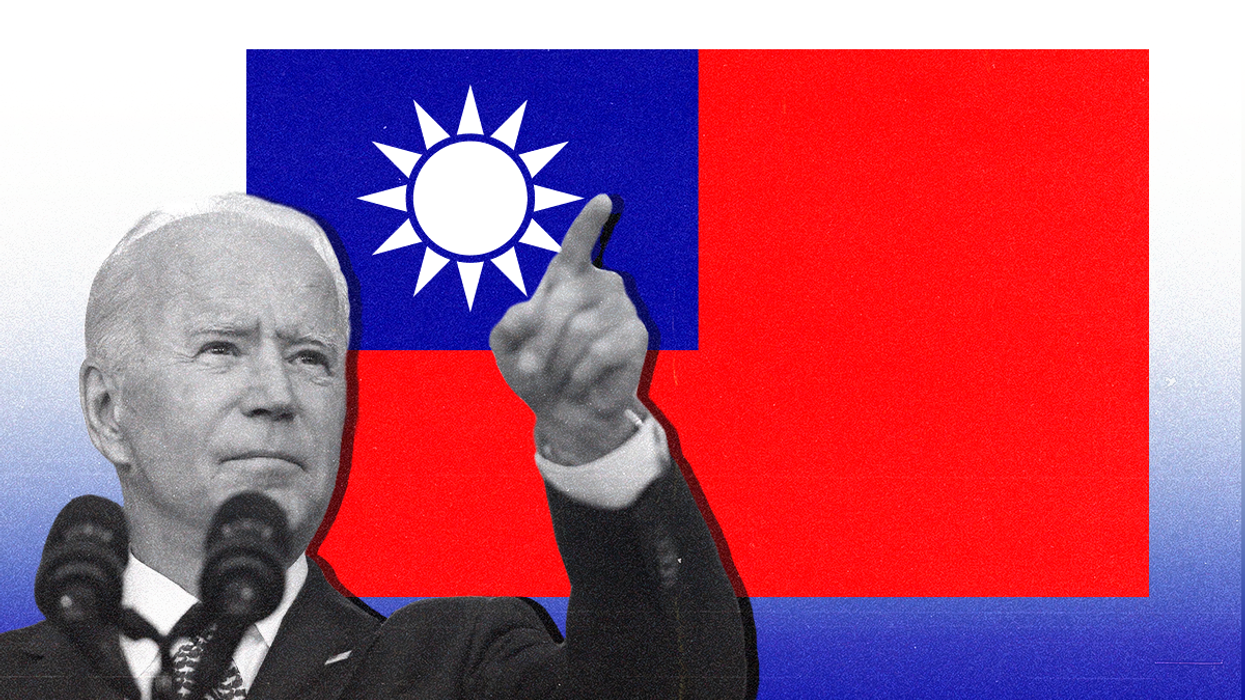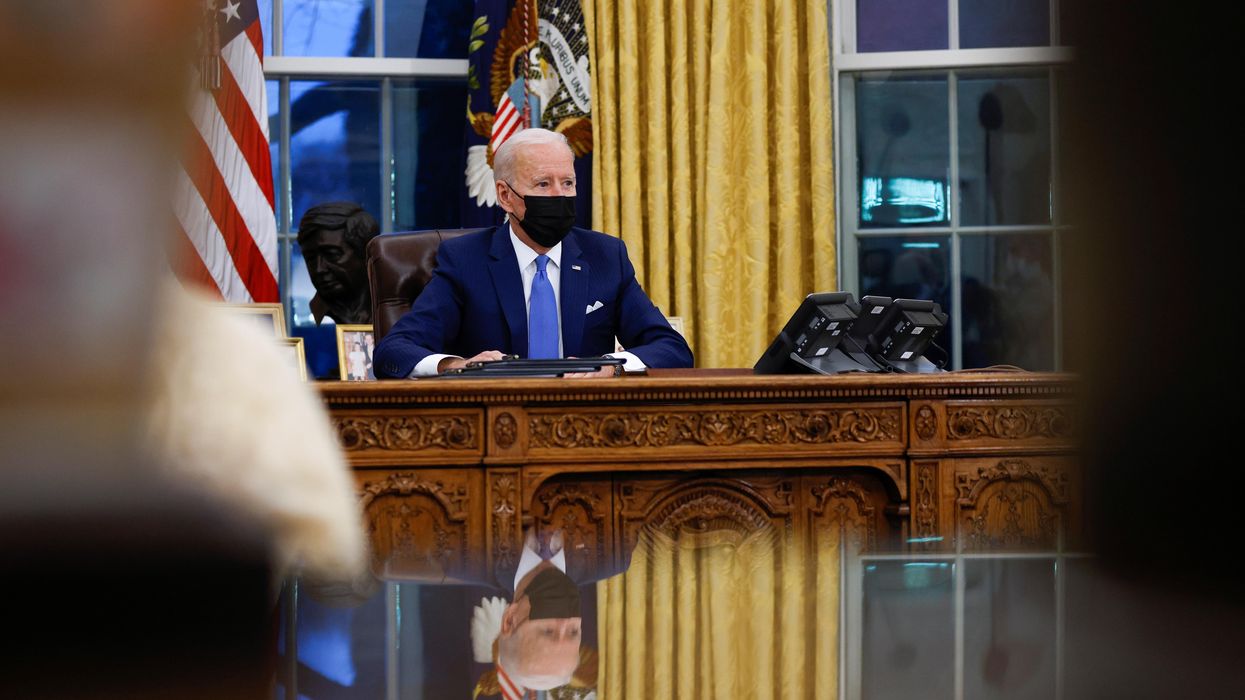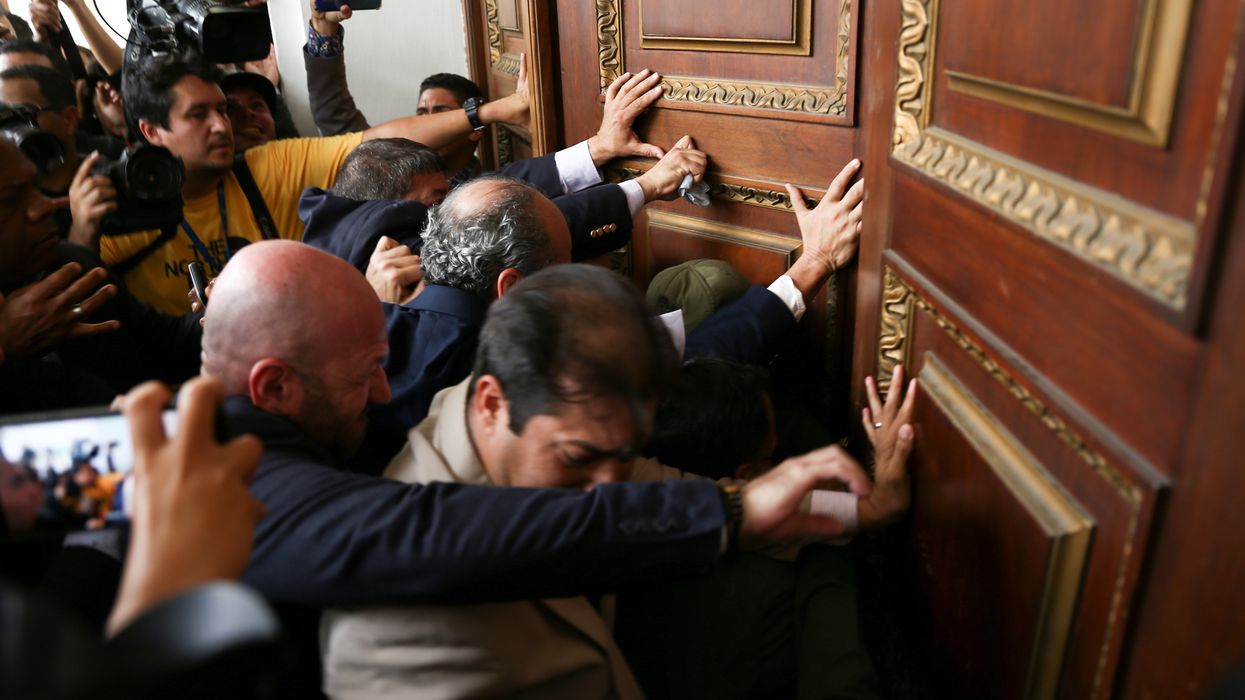What We're Watching
Venezuela briefly arrests opposition leader just ahead of Maduro inauguration
Regime forces violently detained Venezuelan opposition leader María Corina Machado as she left a rally in Caracas on Thursday, one day before strongman President Nicolás Maduro was set to begin his third term.
Jan 09, 2025
